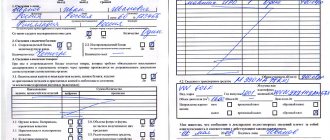According to the EAEU Customs Code, imported and exported goods for personal use generally must be declared at customs. In particular, the following must be declared:
- goods transported by any method other than in accompanied baggage (i.e. in unaccompanied baggage, delivered by the carrier, sent in international mail);
- goods subject to prohibitions and restrictions;
- goods for which it is required to pay customs duties or taxes, as well as those imported with exemption from customs duties and taxes;
- vehicles;
- cash if the total amount exceeds the equivalent of US$10,000;
- coffins with the bodies of the dead, urns with ashes.
In other words, you do not have to declare goods for personal use only if they: a) are transported in accompanied baggage, b) are not subject to prohibitions and restrictions, c) do not exceed established weight and value limits and do not require payment of duties.
Customs declaration of goods for personal use is carried out by the declarant or a customs representative. Declarants of goods for personal use may be individuals of the EAEU member states or foreign individuals who have reached the age of 16:
- owners of goods transported in accompanied luggage;
- who handed over the goods to the carrier for transportation in unaccompanied baggage;
- who are senders or recipients of goods for personal use sent by international mail;
- owners (or having the right to use or dispose of) vehicles crossing the border.
For persons under 16 years of age, the declarant must be their representative (parent, guardian or other accompanying person).
Postal items
The simplest way to transport goods for personal use in relation to declaration is international mail . In this case, the declaration itself is usually carried out by the postal operator. In the Russian Federation, such an operator is the Federal State Unitary Enterprise Russian Post.
In this case, the documents accompanying the postal item act as a passenger customs declaration. When ordering a parcel, the recipient only needs to provide the sender with his full name and address details where the cargo will be received.
If the cargo is sent as part of duty-free import, then at the end of the delivery processes the individual receives a notification according to which the goods are released. If the cargo nevertheless exceeds the duty-free limits, then customs duties are assessed, only after payment of which an individual can receive his parcel.
However, an individual (sender or recipient) has the right to declare goods sent by mail by filling out and submitting a passenger customs declaration to customs. Most likely, this is how you will have to act if goods are subject to import bans and restrictions, and the provision of permitting documents is required, for example, notification, conclusion of a government body, sanitary certificate, etc.
The procedure for declaring goods transported across the customs border by individuals
Declaration of transported goods
The movement of goods by individuals across the customs border of the Customs Union of goods occurs subject to their mandatory declaration.
Goods can be declared:
- An individual moving goods (citizen of the Russian Federation, citizen of a foreign state);
- Persons acting on the basis of a power of attorney (carriers, customs representatives);
- Parents, guardians, adoptive parents or trustees, if the movement of goods across the customs border is carried out by a minor individual under the age of 16;
- The leader of the group during the organized departure/entry of a group of minors.
Declaration of goods for personal use, with the exception of those sent by international mail and placed under the customs procedure of customs transit, is made in writing using a passenger customs declaration.
Russian legislation provides for two forms of declaration of transported goods:
- oral declaration form - a statement from an individual to the customs authority about the absence of goods that are subject to mandatory written declaration among the goods transported across the border of the Customs Union;
- written declaration form – an application by an individual to the customs authority, which is provided for goods subject to mandatory written declaration.
The oral form of declaration also includes the declaration of goods being moved when using a two-channel corridor system. This form of declaration provides for the presence of a system of “red” and “green” corridors.
The procedure for declaring goods in writing by individuals
The following goods are subject to declaration in writing:
- Goods transported by individuals in unaccompanied luggage or delivered by the carrier to an individual;
- Goods sent to individuals for personal, non-commercial use. The exception is goods sent by international mail;
- Goods for personal use, transported by any means, subject to prohibitions and restrictions, except for non-tariff and technical regulation measures;
- Goods for personal use, transported by any means, including temporarily imported, the cost and (or) quantity of which exceeds the norms for the movement of such goods with exemption from customs duties;
- Goods for which, according to the legislation of the Customs Union, mandatory declaration in writing is provided (for example, weapons, cultural property);
- Cash and/or monetary instruments moved by individuals across the customs border, in cases established by the customs legislation of the Customs Union;
- Vehicles for personal use, transported by any means, with the exception of vehicles for personal use, registered on the territory of the member states of the Customs Union, temporarily exported from the customs territory of the Customs Union and imported back into such territory;
- Currency of member states of the customs union, securities and (or) currency values, traveler's checks in cases established by law;
- Goods for personal use imported in accompanied baggage, if the individual transporting them has unaccompanied baggage
List of goods subject to mandatory declaration in writing
Goods transported in hand luggage, accompanied and unaccompanied luggage are subject to mandatory written declaration:
- Goods imported by air, the total value of which exceeds 10,000 euros and/or the total weight of which exceeds 50 kilograms, which exceeds 50 kilograms, imported by other modes of transport, the total value of which exceeds 1,500 euros and/or the total weight of which exceeds 50 kilograms.
- One-time import and one-time export to/from the customs territory(s) of the Customs Union of cash (banknotes, treasury notes, coins, with the exception of coins made of precious metals) and (or) traveler's checks for a total amount exceeding the equivalent of 10 000 (ten thousand) US dollars, for the entire amount of imported cash and (or) traveler's checks.
- Import and export of monetary instruments (bills, checks (bank checks), securities).
- Precious metals (gold, silver, platinum and platinum group metals - palladium, iridium, rhodium, ruthenium and osmium) in any condition and form: - imported temporarily; — exported (with the exception of temporarily exported jewelry, including those with inserts of precious stones).
- Precious stones: temporarily moved emeralds, rubies, sapphires and alexandrites, natural pearls in raw (natural) and processed form, unique amber formations, diamonds, moved natural diamonds.
- Exported state awards of the Russian Federation;
- Cultural values.
- Exported state awards of the Russian Federation.
- Goods for personal use received as an inheritance, subject to documentary confirmation of the fact of receiving such goods as an inheritance.
- Endangered animals and plants, their parts, derivatives, as well as products obtained from them.
- Weapons (devices and objects structurally designed to hit a living or other target, giving signals), main parts of a firearm (barrel, bolt, drum, frame, receiver), cartridges (devices designed to fire a weapon, combining into one with the help of a casing, a means of initiation, a propellant charge and projectile equipment), components of cartridges (capsulated casings, primers, gunpowder) and ammunition.
- Imported alcoholic beverages in quantities exceeding 3 liters.
- Imported tobacco products in quantities exceeding the permissible values for duty-free import.
- Narcotic drugs, psychotropic substances and their precursors.
- Potently toxic substances.
- High-frequency devices and radio-electronic equipment, with the exception of terminal equipment.
- Special technical means designed to secretly obtain information.
- Exported material objects containing information constituting a state secret.
- Nuclear materials, equipment, special non-nuclear materials and related technologies.
- Radioactive isotopes, radioactive substances and products based on them.
- Exported raw materials, materials, equipment, scientific and technical information, results of intellectual activity that can be used in the creation of weapons of mass destruction, their delivery vehicles, other types of weapons and military equipment.
- Imported chemicals that can be used to create chemical weapons.
- Military products.
- Vehicles.
- Goods carried in unaccompanied baggage.
- Goods sent to individuals for personal use, with the exception of goods sent by international mail.
In addition to the goods indicated in the list, individuals may also declare other movement of goods across the customs border of the Customs Union. Such goods can be temporarily imported/exported with their subsequent export/import, goods whose total value does not exceed the established maximum (1,500 euros or 10,000 euros depending on the type of transport) and/or whose total weight does not exceed 50 kilograms.
If a customs declaration has not been submitted for the goods specified by an individual, the customs official considers this as a statement about the absence of goods subject to mandatory declaration in writing.
Reporting false information in the declaration, as well as passing through simplified customs declaration places if the citizen has goods subject to mandatory declaration, entail liability in accordance with the Code of the Russian Federation on Administrative Offenses and the Criminal Code of the Russian Federation.
Written declaration of goods transported in accompanied luggage.
When declaring in writing goods transported in accompanied luggage, a passenger customs declaration is filled out in the form TD-6, with the obligatory indication of the customs value of the goods. This declaration is submitted simultaneously with the presentation of the goods.
A simplified procedure for performing customs operations in relation to transfer luggage of transfer passengers departing from the Russian Federation, containing goods that are not subject to customs declaration in writing.
Decree of the Government of the Russian Federation dated March 3, 2012 No. 172
Transfer baggage of transfer passengers is goods accepted by the air carrier for transportation in accompanied baggage from the point of departure on the territory of the Russian Federation to a destination outside the customs territory of the Customs Union with an intermediate landing at the place of departure from the territory of the Russian Federation.
Customs control of transfer luggage is carried out without presenting it to the customs authority. The presence of a numbered luggage tag confirms the transfer passenger’s statement to the customs authority about the absence of goods that must be declared in writing.
Conditions for applying the simplified procedure:
- The air carrier and (or) the operator of the airport of departure authorized by it, before the start of check-in of the transfer passenger: - ensures that he is informed about the possibility of check-in of transfer baggage only if it does not contain goods subject to customs declaration in writing, - informs about the conditions, restrictions, responsibilities arising after registration of the transfer passenger, - notifies of the need to comply with the requirements of the customs legislation of the Customs Union and the legislation of the Russian Federation on customs affairs.
- The above is ensured by indicating the relevant information in the terms of the air carriage agreement, posting on the official Internet website of the air carrier and its authorized operators of the departure airport and transfer airport, also in the media, posting in the information areas of the airport, transfer passenger check-in counters, and is brought to the attention of the transfer passenger via his survey during registration.
- The transfer passenger is required to agree to familiarize himself with the Regulations on the simplified procedure in the event of concluding an air carriage agreement using the Internet or other information systems (in the corresponding field of the Internet page). The transfer passenger declares that there are no goods in his transfer baggage that are subject to customs declaration in writing when registering the transfer baggage at the airport of departure.
- After registration of transfer passengers and registration of transfer luggage is completed, information about them is transmitted to the customs authority of the transfer (departure) airport in electronic form before the aircraft arrives at the transfer airport (luggage tag number, flight number, full name of the passenger and his passport data, number of seats and weight each transfer baggage, total number of pieces and total weight of transfer baggage, full air transportation route).
- The principle of priority presentation of transfer baggage for customs and other types of control in cases where the transfer passenger has expressed a desire (including after check-in for the flight and registration of transfer baggage) to make a customs declaration in writing of the goods contained in the transfer baggage.
- If problem baggage is detected (if signs are identified indicating the possible presence of goods in the transfer baggage that are subject to written declaration), a search and identification of the transfer passenger who owns the problem baggage is provided, excluding the possibility of the transfer passenger to board the aircraft and delivery of the problem baggage to the premises customs inspection.
- Customs inspection premises must be equipped with appropriate equipment.
If the above conditions are not met, the transfer baggage is processed by the air carrier and (or) the operator of the departure airport authorized by it, and the transfer passenger is notified of the need to receive his baggage at the transfer airport and carry out customs operations in the usual manner.
Simultaneously with TD-6, depending on the circumstances of the trip, documents are submitted to confirm the stated information:
- identification document (passport, international passport, birth certificate for minors, etc.);
- a document confirming the adoption, guardianship, guardianship of a minor (if the goods are declared by an individual on behalf of the minor);
- documents confirming the purchase and cost of the declared goods (invoices, checks, etc.);
- transport (shipping) documents (waybills, luggage receipts, etc.);
- documents confirming the right to benefits (including for temporary import, refugees moving for permanent residence, etc.);
- documents confirming compliance with non-tariff restrictions (licenses, permits, etc.);
- other documents, including those confirming the purpose of the goods for personal use (if necessary);
If the declaration of goods occurs orally, documents can be presented at the request of a customs official.
Two copies of the declaration, completed in Russian or English, are submitted to the customs authority at the checkpoint. A note indicating permission or refusal to move goods across the customs border of the Customs Union is placed in the “For official marks” field on both copies of TD-6 and certified by the personal numbered seal of an authorized official. One copy is returned to the individual, the second remains for storage in the files of the customs authority.
Share
Up
X
Proposal builder (for agencies)
About the service
International carriers
If the delivery of goods for personal use is carried out by an international carrier (DHL, UPS, TNT, etc.), then the declaration of such goods can be carried out either by the individual owner of the cargo or by a customs representative. As a rule, large shipping companies provide customs representation services.
Most often, with this method of import (export), the recipient (sender) does not participate in the logistics processes, but only enters into a transportation agreement, according to which the carrier assumes all obligations to move the cargo (organizing transportation and delivery, obtaining the necessary documents) and representing the interests of the recipient . Payment of taxes and duties is also stipulated in the contract and can be carried out either by the individual himself or by the carrier.
For declaration purposes, the carrier (even if there is no need to pay duties) may request from an individual documents confirming the value of the goods, as well as permits.
Customs declaration procedure
Customs declaration of goods provides for a certain procedure, both on the part of the representative of the customs authority and on the part of the declarant himself, namely:
- drawing up the appropriate type of declaration by the declarant and submitting it to the customs authorities;
- automatic assignment of an individual serial number of the customs declaration, regardless of the further decision made;
- consideration by an official of the submitted customs document for no more than two hours;
- adoption by the customs authority of a decision on registration or its refusal, checking the absence of reasons for this and identifying violations of established customs requirements;
- in case of a positive result, the customs declaration is accepted and assigned its own registration number;
- in cases of refusal to register a declaration, the declarant is sent a reasoned refusal in writing.
The following are subject to customs declaration:
- international postal items;
- international transport;
- waste, supplies and residues;
- illegally imported goods;
- products whose customs value exceeds a certain amount of money or are subject to customs duties and taxes.
The period for customs declaration when importing goods into Russia should be no more than 15 days from the moment they are submitted to the customs authorities. When submitting motivated requests, the total period may be extended. When exporting goods, a customs declaration is drawn up and submitted before their actual departure. Also, separate legislative norms prescribe the procedure and period for declaring products that were an instrument, means or element of an offense. For this purpose, 30 days have been determined from the date of entry into force of the relevant decisions on release.
For the submission of incorrect data and information in the customs declaration, the norms of the Criminal, Administrative and Customs Code of the Russian Federation provide for various sanctions, involving the imposition of large fines, confiscation of all cargo, as well as criminal prosecution.
Today, thanks to the constant technical improvement of the procedure for registering goods and tightening control over the movement of various types of valuables across the territorial border of the state, customs declaration of goods in Russia has become much more efficient and successful.
Terms and cost of customs clearance of an individual
The period for customs clearance of goods of individuals at the customs of the Russian Federation takes 1 day!
At the same time, the cost of the customs clearance service for goods of an individual depends on the location of the customs office, the complexity of the procedure, the type and status of the goods being moved (for example: personal belongings when moving; goods purchased abroad, etc.).
Table 3. Cost of customs clearance services for goods of an individual
| Average cost of customs clearance services for goods delivered by an individual: | |||
| By road (at auto terminals) | By air (at airports) | By sea (at seaports) | By rail (at railway stations) |
| 10000-30000 rub. | 6000-15000 rub. | 20000-30000 rub. | 20000-30000 rub. |
These prices can be adjusted either up or down and may or may not include temporary storage warehouse (TSW) services.
Also, if necessary, our specialists provide assistance in preparing documents for self-filing a customs declaration, which can significantly reduce the cost of our services!
We are confident that we will become a reliable partner for you!
Restrictions on the import of alcohol and tobacco
You can import no more than 3 liters of any alcoholic beverages, including beer, without payment, per person over 18 years of age. When importing from 3 to 5 liters of alcohol, you need to pay 10 euros for each liter of excess. There are also restrictions on the import of tobacco products. You can import no more than 200 cigarettes or 50 cigarillos (cigars) or 250 g of tobacco without payment.
You are allowed to import up to 5 liters of ethyl alcohol, paying 22 euros for each liter.
Restrictions on the export of alcohol and tobacco from the EAEU for individuals have been lifted
According to the new version of Decision No. 157 that has entered into force, individuals over 18 years of age can export ethyl alcohol, alcoholic beverages, beer, and tobacco products from the EAEU countries without restrictions.
Attention! Import standards into the country of destination are determined by its legislation.
Declaration tasks and rules for filing customs declarations
Declaration is one of the mandatory stages of customs control; there are different forms of control at customs (oral questioning, inspection of documents, cargo both by general inspection and thorough inspection, with control of selective components, inspection of property, obtaining explanations regarding the purpose of transportation, and so on).
Moreover, in each specific situation, customs officers select the most reasonable and effective ones, as well as those sufficient for each specific case, in order to implement all the rules regarding customs procedures.
One of the most important purposes of declaration is to calculate the customs value of goods that pass through the control post; this is necessary for calculating duties and other payments, legalizing goods and generally complying with procedures. Declaration is necessary in order to:
- check the legality of the cargo itself and its movement across the state border;
- comply with the norms and requirements of current legislation for actions of this kind;
- act in strict compliance with the rules of the procedure in accordance with the chosen mode (export, import, transit).
Let us repeat that customs control is impossible without declaration, and filling out the TD is a mandatory condition. In order for your goods to safely cross the border and the customs control point without delays and bureaucratic delays, you must thoroughly know the specifics of this procedure, its nuances and comply with them.
Specialists will take on this task, competently and professionally draw up all the required documents, including handling the customs declaration of your goods, so that the entire process of control by customs authorities goes through clearly and quickly.








